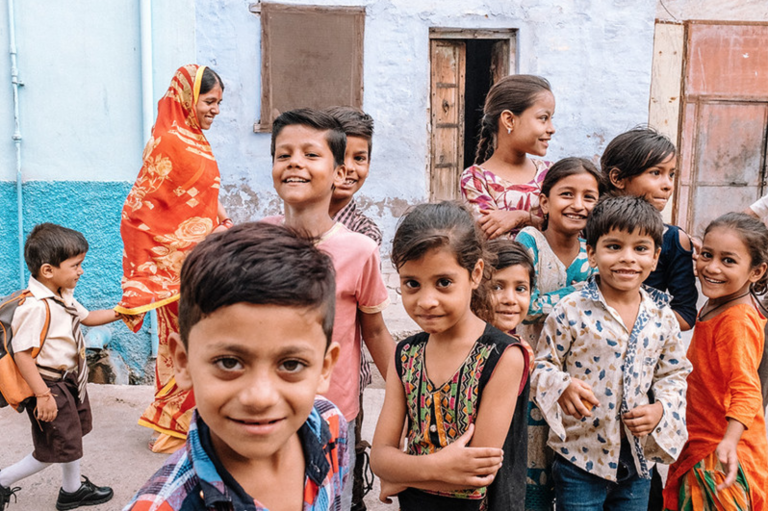Research on Combatting Vaccine Misinformation on Social Media
Challenge
Vaccine-preventable diseases are resurging as immunization coverage has decreased, driven by reductions in vaccine confidence and trust. Social media increasingly provides a platform for sharing health information, particularly for vaccine hesitant individuals, who are more likely to rely on online information. Social media platforms have allowed the rapid spread of health misinformation and disinformation, impacting vaccine confidence globally, including in low- and middle-income countries. As more people turn to social media for vaccine-related information, there is a need to identify and address gaps in our understanding of the relationship between social media and vaccine hesitancy and to ensure that health providers have tools to effectively respond to vaccine misinformation in their communities.
Approach

[Photo by Bart Brouwer.]
The International Vaccine Access Center (IVAC) at the Johns Hopkins Bloomberg School of Public Health (JHSPH) has worked collaboratively with the Sabin Vaccine Institute (Sabin) to define a research agenda and develop training resources for low- and middle-income countries to address vaccine hesitancy and misinformation through social media.
- A PRISMA-compliant systematic review of peer-reviewed and other literature
- Scoping review and analysis of vaccine appeals messaging conducted across five countries
- Development of resources to provide healthcare workers with on-demand training on evidence-based strategies for responding to vaccine misinformation across digital and in-person contexts
Vaccine Misinformation Training Resources
https://ivacjohnshopkins.moodlecloud.com/
Access a free interactive training materials designed to help healthcare providers respond to vaccine misinformation online and in-person. This self-paced training is available in English, French, Spanish, Portuguese, Filipino, Swahili, and Hindi.
Publications
Limaye, R. J., Holroyd, T. A., Blunt, M., Jamison, A. F., Sauer, M., Weeks, R., … & Gellin, B. (2021). Social media strategies to affect vaccine acceptance: a systematic literature review. Expert review of vaccines, 20(8), 959-973. https://doi.org/10.1080/14760584.2021.1949292
Schulz, G., Balgobin, K., Michel, A., & Limaye, R. J. (2023). Vaccine communication: Appeals and messengers most effective for COVID-19 vaccine uptake in Ukraine. Vaccines, 11(2), 279. https://doi.org/10.3390/vaccines11020279
Limaye, R. J., Balgobin, K., Michel, A., Schulz, G., & Erchick, D. J. (2022). What message appeal and messenger are most persuasive for COVID-19 vaccine uptake: Results from a 5-country survey in India, Indonesia, Kenya, Nigeria, and Ukraine. PloS one, 17(9), e0274966. https://doi.org/10.1371/journal.pone.0274966
Limaye, R. J., Erchick, D. J., Balgobin, K., Michel, A., & Schulz, G. (2022). Message testing in India for COVID-19 vaccine uptake: What appeal and what messenger are most persuasive?. Human Vaccines & Immunotherapeutics, 18(6), 2091864. https://doi.org/10.1080/21645515.2022.2091864
Events and Presentations
- Webinar: Social Media Interventions and Vaccine Hesitancy
- Webinar: Making COVID-19 vaccines APPEALing: Pilot message testing in India
- What Message Appeals Are Most Persuasive To Nudge Vax-Hesitant Individuals? – Daniel Erchick, VARN2022
- How Does Equipping Individuals To Identify Vax Misinfo Affect Vax Info Seeking? – Alexandra Michel VARN2022
- What Can We Learn from Climate Change Misinfo to Inform Vaccine Hesitancy Strategies – Rupali Limaye VARN2022
- Evaluation of a Training Resource to Strengthen Healthcare Worker Capacity in Combating Vaccine Misinformation – Emily Miller VARN2023
Project Status:
Complete
Practice Areas:
Policy Engagement
Disease Focus:
COVID-19, Human papillomavirus (HPV), Measles, Polio, Vaccine Programs
Location:
Global
Target Population:
Adolescents, Adult, Child, Older Adults
Project Contact:
Rupali Limaye, PhD, MPH
rlimaye@jhu.edu
